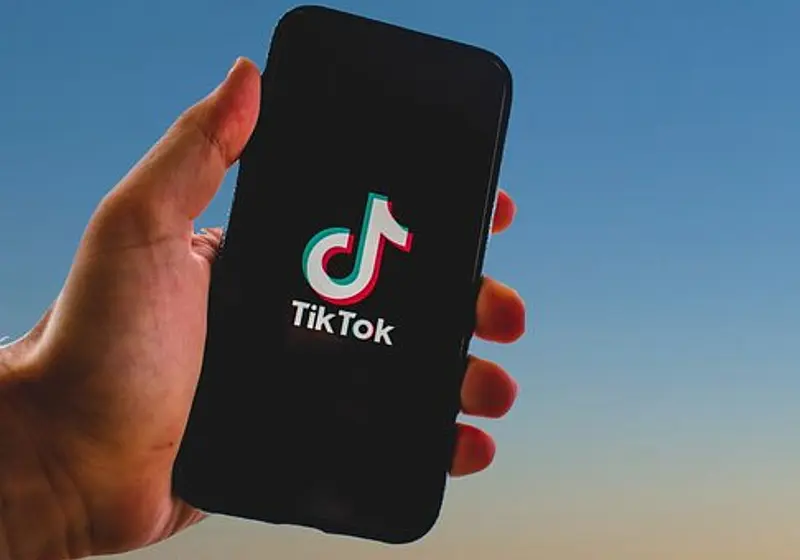In 2018, social media users traded the beloved lip-synching app Musically for TikTok, an app that grew from recycled dance numbers into the beacon of knowledge and entertainment it is today. Teens especially find comfort in the diverse content available. Whether you're a virtual patron of BookTok, a Pedro Pascal fanatic, or invested in the infectious back-and-forth between internet celebrities John and Hank Green, TikTok has something for everybody.
However, following security concerns, President Biden has proposed plans to ban TikTok in the United States, which— predictably— has the 150 million American users of the app up in arms. But besides the T-shaped void TikTok will leave in our hearts and on our phone screens, there are many reasons why TikTok should not be banned in the US.
Let us slide into your dms 🥰
Get notified of top trending articles like this one every week! (we won't spam you)TikTok's CEO has a plan to ensure American security
Following the contentious March 23rd Congressional hearing regarding the future of TikTok in the United States, CEO Shou Chew uploaded a video on TikTok's official profile detailing the company's promises to US consumers. Chew stated that it was "[the company's] responsibility to protect more than 150 million Americans who love and use [the] platform." Because of this, he gave a concrete list of commitments the company would strive toward in order to achieve security for US users.
First, TikTok will "continue to keep safety, especially for teenagers, a top priority." A common concern among parents is that TikTok will expose their children to promiscuous or unsafe content, which TikTok already attempts to combat with its reporting and filtering systems. Additionally, TikTok commits itself to being a platform for free speech while protecting users from bigotry, hate speech, or other forms of discrimination. During the hearing, Congresswoman Yvette D. Clark asked one of the most respectable and vital questions of the day when she expressed concern regarding silenced black creators. She stated that more black and POC creators seemed to "violate community guidelines" than their white counterparts and that TikTok's algorithm often incorrectly flags content discussing racism, white supremacy, or CRT, which results in more black creators losing out on rewards from monetization. Chew discussed TikTok's appeals process, which allows creators who feel their videos have been wrongfully reported to reupload their suppressed content.
Second, Chew stated that they would "continue to protect [US] data from unauthorized foreign access." He went on to say that "American data will be stored on American soil, by an American company, overseen by American personnel." This detail is critical, as many Congresspeople asserted their concerns regarding the Chinese government collecting US data (it is important to understand that many of the claims regarding the Chinese government's effects on TikTok are baseless results of fear-mongering. Not only does Tiktok not operate in China —Shou Chew is from Singapore—but there is also no solid evidence that US data is in jeopardy, which Congresspeople even admitted during the hearing).
Third, the company "will ensure that TikTok remains a platform for free expression and that it cannot be manipulated by any government." Many Americans belonging to older generations have expressed concerns about TikTok interfering with US elections or planting propaganda on the app. With this claim, Shou Chew ensured that this would not happen. Furthermore, it is vital that TikTok be a platform built on free expression and that viewpoints, especially those of underrepresented minorities, be heard.
Political communities, for example, discuss upcoming elections on the app, and many speculate that TikTok conversations had much to do with the 2022 midterm results. Additionally, the app is and should continue to be a place where anyone, regardless of race, gender, cognitive or physical abilities, sexuality, or belief system, can share their talents and opinions (as long as their videos do not encroach on someone else's rights).
Finally, Chew committed to "transparency," stating that TikTok will "give access to third-party independent monitors to keep [the app] accountable for [their] commitments." He continued to say that trust is built, and each decision the company makes affects the American people's trust in TikTok, which is why they are putting in place additional measures to ensure that these commitments be upheld. These commitments would arguably make TikTok one of the most secure and safe social media apps on the market today.
Take the Quiz: Which Indian city is the perfect holiday spot for you!?
Let's match you with an Indian city that you would love!
TikTok is not a security threat
This leads to the next point: TikTok is not a security threat. At least, no more than other social media apps.
If Congress was interested in having a larger conversation about internet security and what apps are allowed to do with data, Thursday's hearing might have been worthwhile. Many social media apps, especially those under the Meta umbrella such as Instagram and Facebook, have a history of selling data to "the highest bidders," which allows them to plant targeted advertisements. Other apps, such as the dating app Grindr, have gotten into data-selling scandals, with reports of the app selling information to Catholic churches, which hoped to exploit gay priests. These are severe security breaches that could evoke discussion.
However, TikTok has no provable history of selling data to third-party companies and only uses data to better its algorithm, which is not unique to Tiktok. Many appalled TikTok users suspect that lobbyists requested the proposal of a TikTok ban in Congress, with some even going so far as to say that this is all an attempt by Mark Zuckerberg, CEO of Facebook and largest shareholder of Instagram, to earn back profits lost as a result of TikTok's increasing popularity.
Regardless, the fact remains that there is no substantial evidence that TikTok has committed any sort of egregious data-selling sins, and when you examine other apps' atrocities, the proposal of a TikTok ban due to "security threats" becomes laughable.
TikTok Launches and builds careers
Finally, it's important to note all of the good TikTok does for its users. Shou Chew said it best when describing TikTok as a facilitator of "conversation and community." The app has been known to skyrocket small businesses to success, bring indie artists into the limelight, and spotlight new authors, among other things. Peachy BBs, a slime shop owned by TikTok user Andrea O., found immense success on the app.
Not only did she accumulate an astounding 5.7 million followers as of 3/25/23, her regularly posted videos, which include her making slime, answering questions, and packing orders get, on average, hundreds of thousands of views. Content creator Keith Lee facilitates small business growth as well. The culinary king has gained an impressive 11.3 million followers on his profile, where he reviews restaurants in need of business. Lee regularly gets millions of views on his videos, making a review from him life-changing for the businesses he highlights.
Another example of someone granted success because of TikTok is singer Noah Kahan, whose song "Stick Season" blew up on the app. Kahan followed the success of this single with an album by the same name. He currently has 8 million monthly Spotify listeners, and many songs on his debut album have tens of millions of listens (Stick Season has accumulated an impressive 123 million listens as of 3/25). Kahan embarked on the US leg of his tour in early 2023 and will continue to play shows through 2024.
A final example of TikTok-inflicted success is BookTok, a movement on the app that encourages users to read. The #Booktok has hundreds of billions of views, and the books that circulate the hashtag regularly make the New York Times Bestseller list.
The Inheritance Games series, the A Good Girl's Guide to Murder series, and The Summer I Turned Pretty series are all great examples of YA books that have grown exponentially in popularity because of TikTok, with the majority of their readers being teenage girls. Booktok gets people excited about reading and exposes people that wouldn't otherwise read to a plethora of interesting novels.
TikTok is a versatile content creation app that allows its users to connect and prosper by building communities, fanbases, and groups of loyal customers. It does not pose any substantial security threats, and CEO Shou Chew himself expressed the company's dedication to keeping American data safe. As such, TikTok should not be banned from US app stores.













